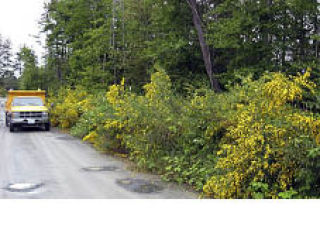This fall the County Noxious Weed Control Board (NWCB) will ask the San Juan County Council to increase the noxious weed control assessment to restore the capacity of the Noxious Weed Control Program and to fund it adequately for the next five years. The NWCB is requesting a five- to ten-dollar increase in the annual assessment to each property owner in order to keep the program functioning at its historical capacity. The noxious weed control program receives a fixed funding level based on the number of parcels. That number has barely increased over the last six years since the assessment was first passed, causing a budget crisis for the program. The program’s budget has essentially remained the same while cost of living (COLA) increases, automatic pay increases required for county staff, and other program costs have continued to increase. As a consequence, the board has had to reduce the number of hours the noxious weed coordinators work in order to stay within budget. The proposed assessment would allow the program to be restored and would fund projected expenditures for a minimum of five years.
The NWCB estimates the impact on property owners would be minimal. About 64 percent of all property owners in the county would pay less than $12.16 per year and 84 percent would pay less than $16.21. The remaining 16 percent of property owners would pay varying amounts more, depending on the size of their parcels but virtually all would be assessed at less than $50 per year. Many of the larger parcels in the county are in open space or DNR programs, for which the assessment is much lower than the standard rate. All parcels over 20 acres in an open space or DNR program would be assessed at less than $17 per year.
The additional income received from the proposed assessment would allow the two noxious weed control coordinators, Rich Lee and Judy Jackson, to continue to provide San Juan County citizens with free property surveys, free consultations and assistance with weed removal strategies, free access to herbicide research and information, free noxious weed control educational events, and to continue the enforcement program. The restored funding would also allow time for the coordinators to work with San Juan County Public Works to control roadside infestations, which remain a significant challenge. The program coordinators also work with other agencies such as the Land Bank, DNR, and WSDA and the Port of Friday Harbor, on specific weed problems, including spurge laurel, spartina, sulfur cinquefoil and other species. The Noxious Weed Control Program is legally mandated by the State of Washington. The County Council has scheduled hearings on the request for Sept. 30 and Oct. 14.



